
Stumbled across this TED Talk the other day and was pretty impressed with how well he presented his data to back his argument.
I have 2 issues with his presentation though.
1 - After doing a fine job of accounting for the CO2 emissions of an electric car during it's production (sourcing materials, constructing the battery, etc.), towards the end of the talk he praises "green renewable" energy sources as these CO2 ("carbon free") methods of energy production. He suddenly fails to account for the CO2 "cost" to manufacture those solar panels or wind turbines.
2 - At the very end he makes a statement about using a current technology to make a difference today, IE hybrid vehicles. I personally have an issue with this from a mechanical engineering standpoint. A hybrid vehicle is as expensive as it is due to shear complexity. An electric car, when you reduce it's systems down to the simplest systems, is as "simple" as connecting a battery to an electric motor and the output of that motor to the drive wheels. An electric car is just a massively scaled up form of an RC car (at it's very basics).
A hybrid vehicle combines 2 different drivetrains and has to make both of them 'play nice' with the other one. It's also carrying 2 'fuel' sources. A hybrid has an internal combustion engine and a fuel tank, and then it has an electric motor and a battery. That battery and the fuel tank has to go somewhere and it usually means sacrificing internal volume of the vehicle, reducing either cargo capacity or passenger comfort (leg room for instance). The size of the fuel tank and the size of the battery becomes a balancing act for the manufacturer to try and determine range on battery and range on ICE.
Next, my understanding of hybrids (and this might not be true of some of the newer models) is that only 1 power source is used at a time, that is to say when the electric motor is running, the ICE is off. Then when the ICE is running the electric motor is off. This produces another set of inefficiencies. When the electric motor is running, it has to 'drag around' the combustion engine (which is doing nothing) and the gasoline fuel tank, both are essentially 'dead weight.' Then when the combustion engine is running, it has to 'drag around' the weight of the electric motor and the battery pack. Now, in this instance there are 1 of 2 possibilities occurring. In the best case, the electric motor is being used a generator to recharge the battery, but this puts additional load on the engine reducing it's mileage efficiency. In the worst case, the electric motor is doing nothing and is 'dead weight.'
Lastly there is the driveline connection. Both the electric motor and the combustion engine have to be able to drive the wheels of the car, which means that they have to have a shared connection to the drive shaft(s) somewhere. This is likely some sort of coupling system so that the electric motor doesn't end up back-driving the engine when the engine is not supposed to be running. Again, added complexity. Electric motors typically have the torque necessary to direct drive the wheels of your average passenger car, but they will often use some sort of planetary gearset to help their efficiency. A combustion engine still needs to have a transmission with multiple gears. So both of these systems have to co-habitat. Add complexity.
At the end of the day, batteries have a finite lifespan. I highly doubt there many (if any) 1st generation Toyota Prius out there still running on an original battery that has any useable capacity. I heard of many Prius owners that either couldn't afford or didn't want to pay the several thousand dollars it would cost to have the battery pack replaced when it died, so they would end up driving around exclusively on the combustion engine which at that point is literally hauling around dead (battery) weight.
Hybrids, in my opinion, are a pretty terrible stop-gap technology, and that's being nice. I saw them as 'feel good' answers to the 'global warming problem' when they first went on sale. I personally have no desire to own an electric car anytime soon, but I would sooner own an electric car than I would a hybrid.
NOTE: Original Full title to this post was "Electric cars are not the solution according to TED Talk guest (at least not currently)", as it turns out, this title was too long for the formatting system here on the forum and was the reason my original post was a thin long column on the right side of the screen so I shortened the title.
madmechanical engineer you just made my day by stopping by to make another wonderful post, sharing your wisdom/insight about something most of us lack knowledge about.
What's ironic about the CO2 emitted by combustion engine vehicles..........is that this is entirely by design and the way that these devices work is what makes them the greatest pollution fighting device in history!
The catalytic convertor which caused pollution from over 50 cars today to be equal to just one car in the 1960's............now, is one of the biggest sources of redefined pollution on the planet..CO2.
https://en.wikipedia.org/wiki/Catalytic_converter
A three-way catalytic converter has three simultaneous tasks:[18]
Reduction of nitrogen oxides to nitrogen (N2)
Oxidation of carbon monoxide to carbon dioxide
Oxidation of unburnt hydrocarbons (HC) to carbon dioxide and water, in addition to the above NO reaction
That's the twisted nature of this scientific hoax.
The equation for Photosynthesis has been redefined:
Sunshine + H2O + CO2 + Minerals = O2 +Sugars(food)
Is now:
Sunshine +H2O +POLLUTION + Minerals = O2 +Sugars(food) + Climate Crisis
+++++++++++++++
Public health and the environment.
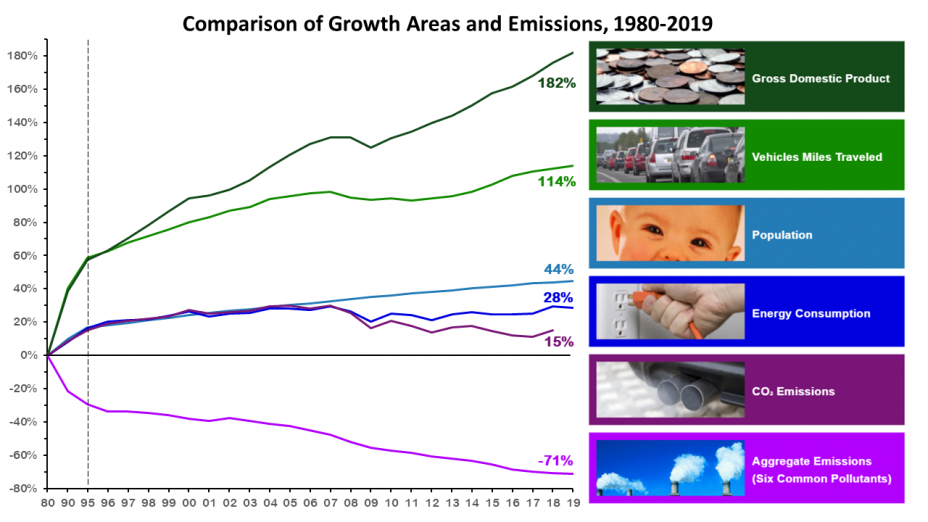
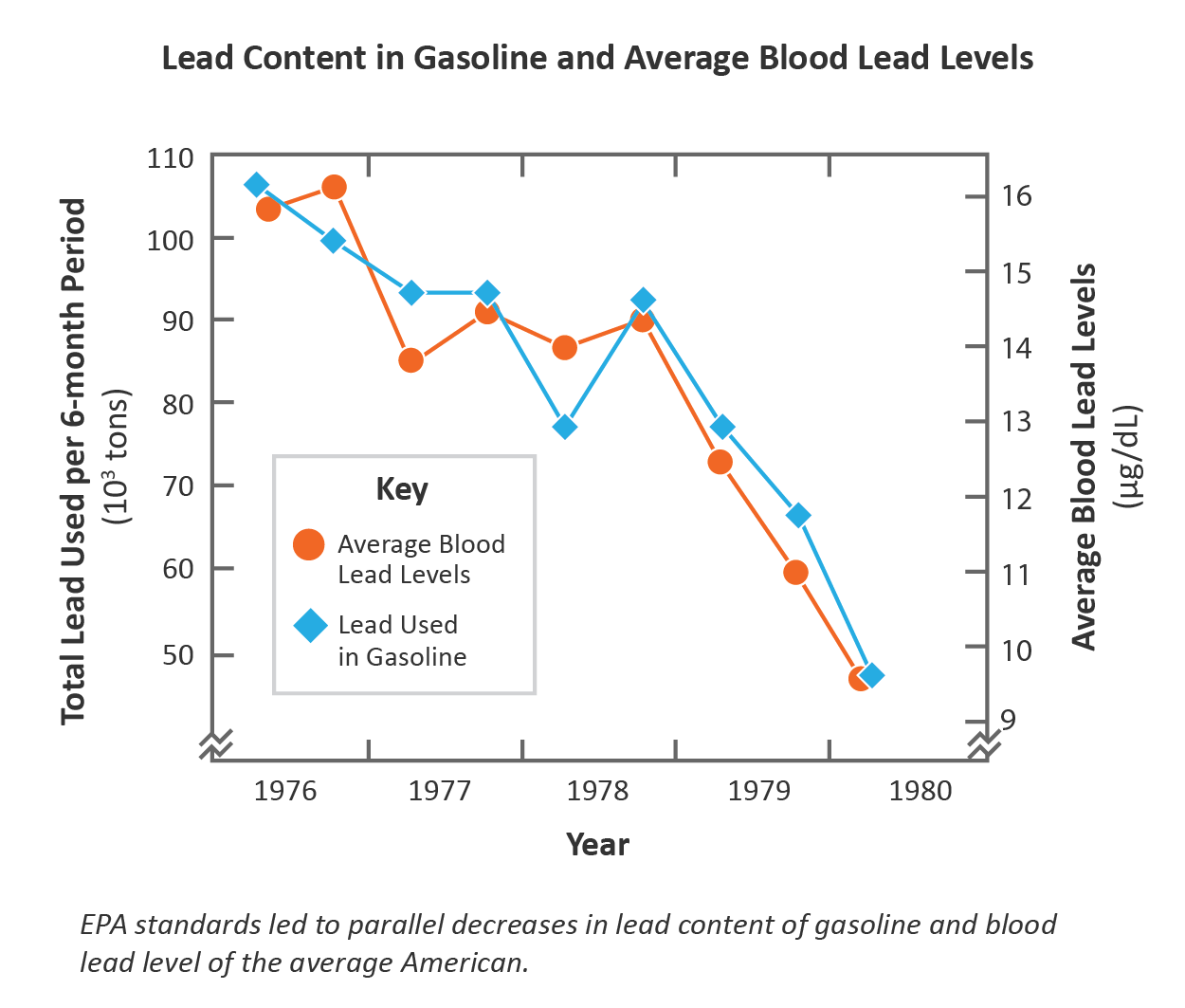
++++++++++++++++++++++++

So what would be the health benefits of CO2 reduction?
In the history of humans, not only has there never been a death from breathing too much ambient atmospheric CO2, there has never been 1 incident of any creature having a health related problem because of breathing ambient atmospheric levels and that would still be true at levels twice what they are currently.
So every $1 spent to reduce CO2 emissions................is flushed down the toilet. It would also do almost nothing to effect the climate...........which is the best climate for life in 1,000 years anyway.
https://www.marketforum.com/forum/topic/39674/
The sales of electric cars are booming, but the rising demand for transition minerals will pose a challenge for the mining industry.
https://www.mining-technology.com/analysis/concerns-for-mineral-supply-chain-amid-booming-ev-sales/
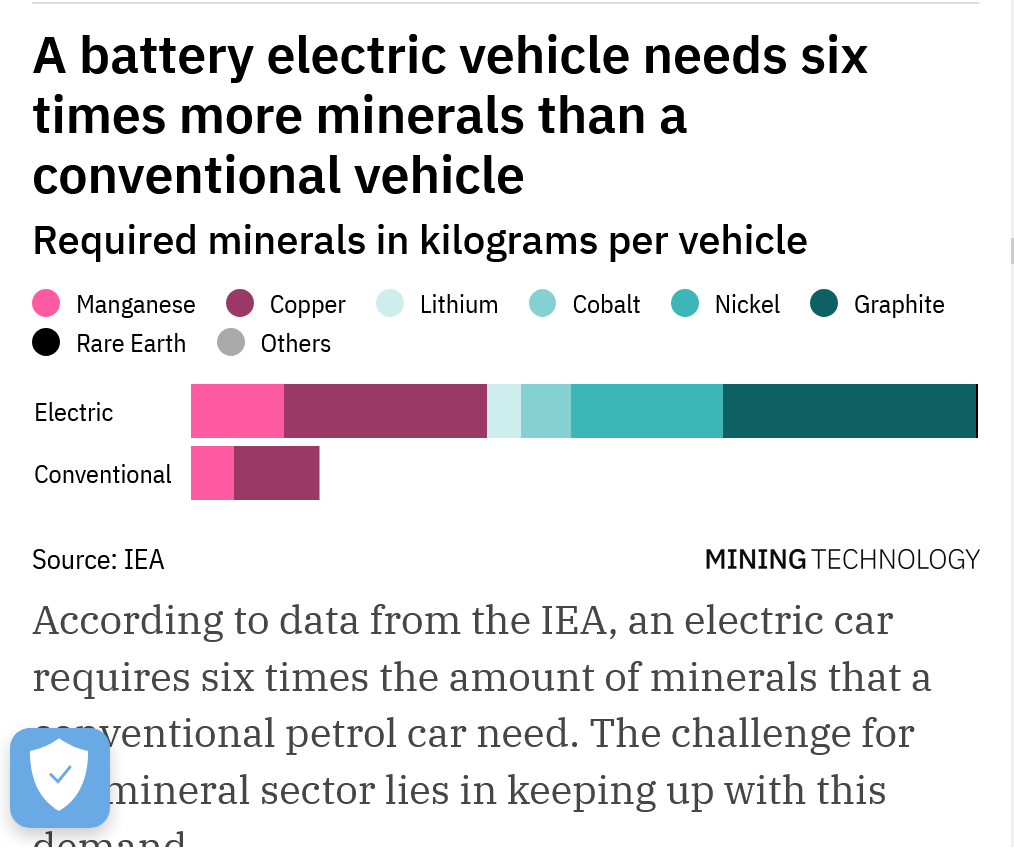
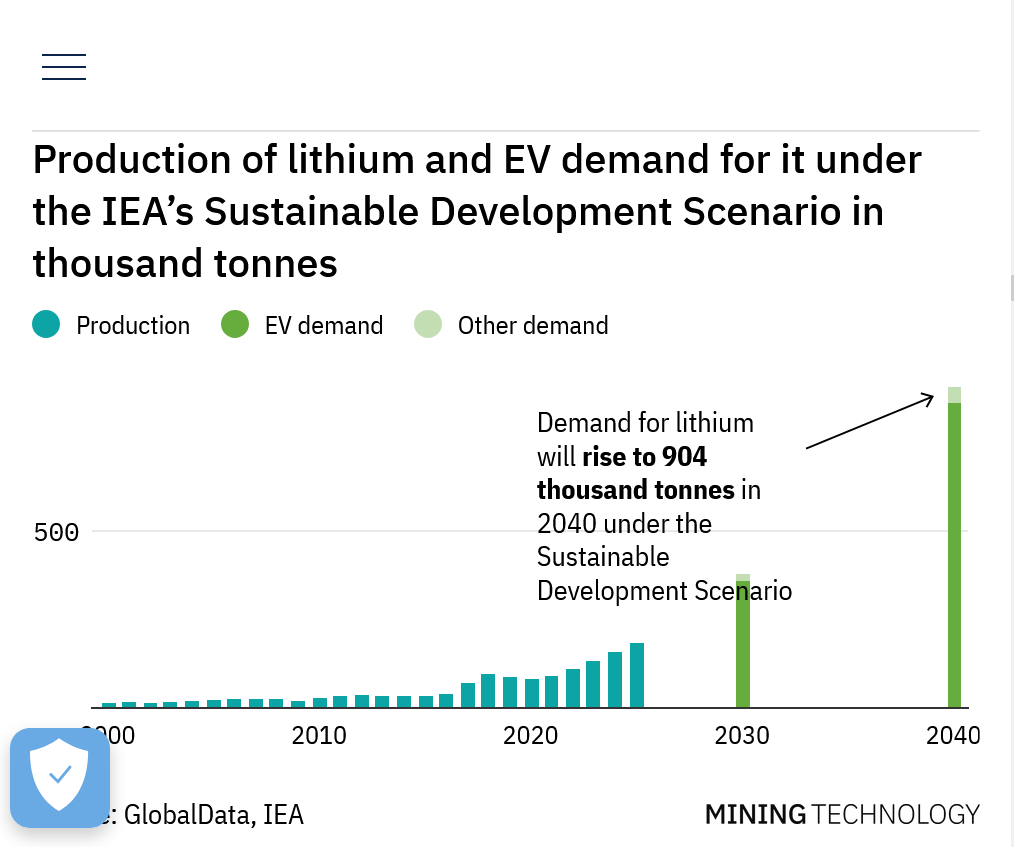
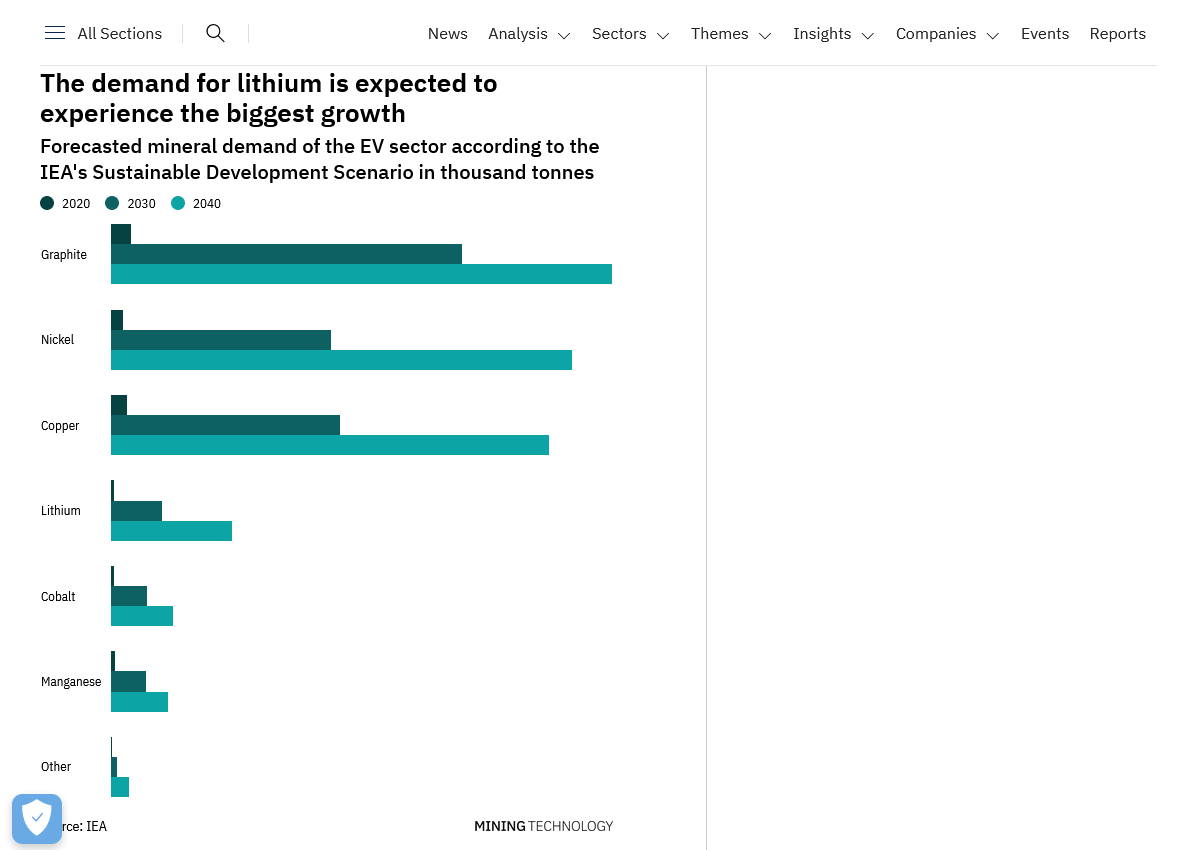
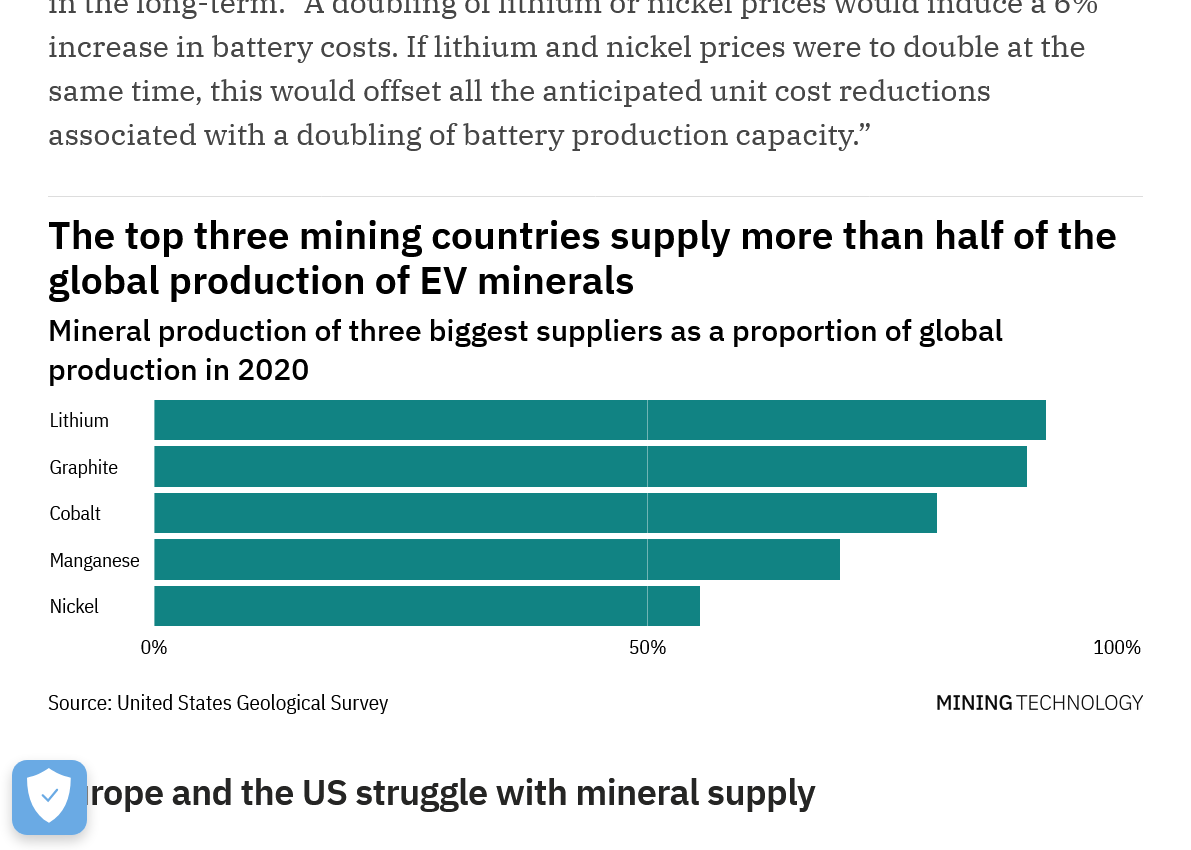
Another challenge for the future supply chain is that unlike some fossil fuels, many of the minerals essential for EVs are produced in just a handful of countries. Over half of the supply of minerals needed for EV batteries comes from the top three producing countries.
In 2020, Australia was responsible for 48% of global lithium production. For graphite, China is the world’s main supplier, with nearly 79% of global production originating from the country. In the same year, the Democratic Republic of the Congo (DRC) supplied 69% of global cobalt.
With regards to rare earth metals, China has most of them!
https://www.statista.com/chart/18278/global-rare-earth-production/
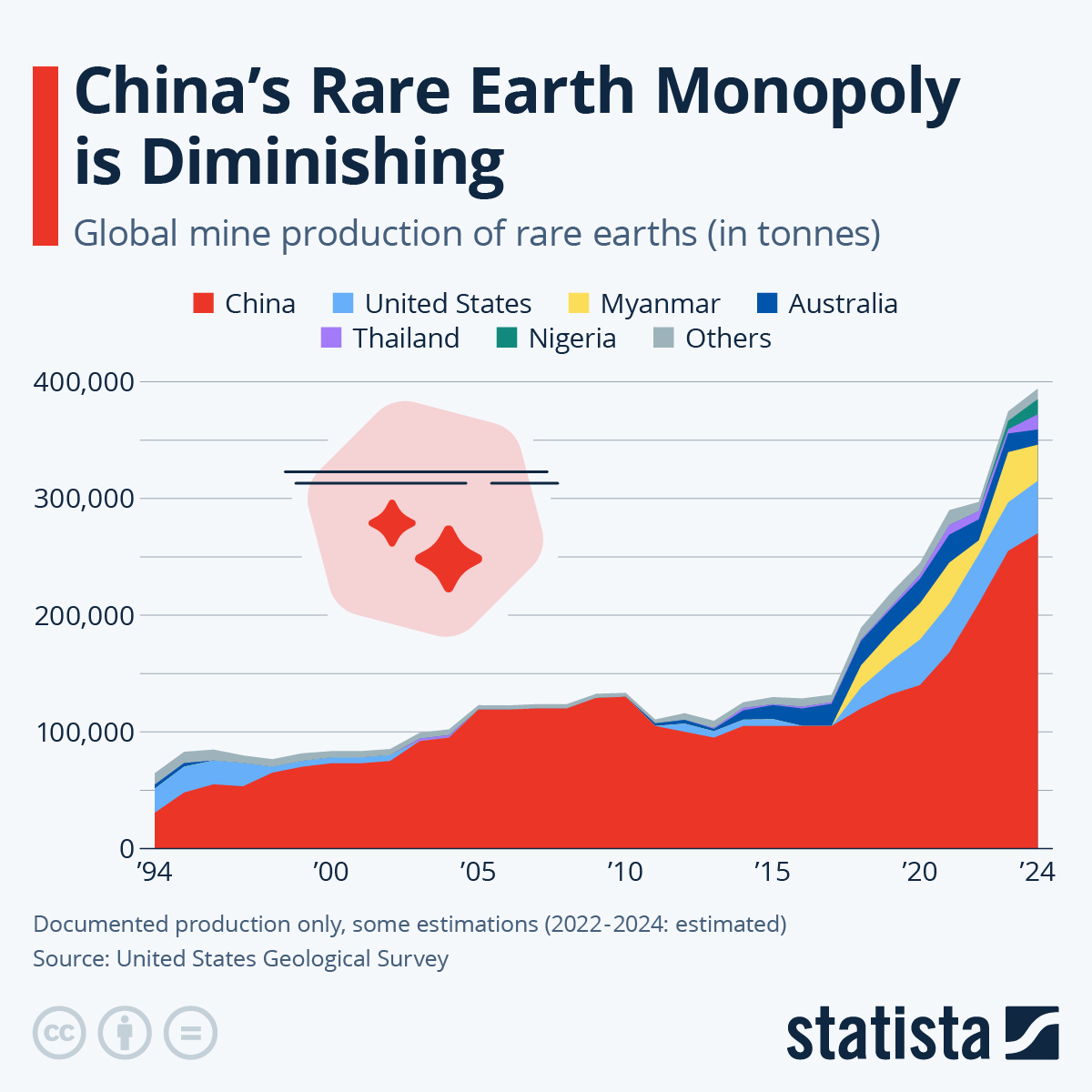
https://geology.com/articles/rare-earth-elements/
Note the amount of reserves below:
World Mine Production and Reserves | ||
| Country | Production (Metric Tons) | Reserves (Metric Tons) |
| United States | 38,000 | 1,500,000 |
| Australia | 17,000 | 4,100,000 |
| Brazil | 1,000 | 21,000,000 |
| Burma | 30,000 | not available |
| Burundi | 500 | not available |
| Canada | -- | 830,000 |
| China | 140,000 | 44,000,000 |
| Greenland | -- | 1,500,000 |
| India | 3,000 | 6,900,000 |
| Madagascar | 8,000 | not available |
| Russia | 2,700 | 12,000,000 |
| South Africa | -- | 790,000 |
| Tanzania | -- | 890,000 |
| Thailand | 2,000 | not available |
| Vietnam | 1,000 | 22,000,000 |
| Other Countries | 100 | 310,000 |
| World total (rounded) | 240,000 | |
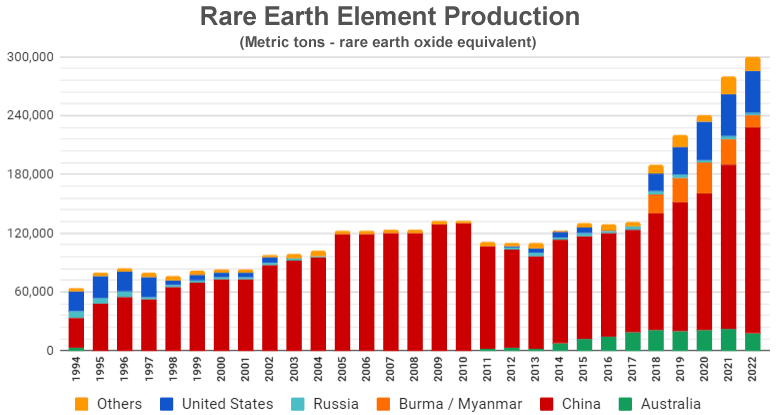
+++++++++++++
China Dominates the Rare Earths Supply Chain
The cost to completely electrify and get rid of fossil fuels is at least $433 trillion.
California tells electric car owners NOT to charge vehicles. Energy crisis in California because of unreliable, fake green/anti environmental energy! September 2022 https://www.marketforum.com/forum/topic/88534/
Hey Mike. Figured this was worth making a post for the good folks here
A couple further thoughts I would like to add.
The presenter talks about some methods of energy generation (fossil fuels and solar/wind), however, he doesn't even hint at the major issue that comes with widespread deployment of EVs: infrastructure. The country will need to spend incredible amounts of money, time and resources upgrading the grid to support the power (charging) demand of EVs. Oh, and you cannot upgrade the grid without generating CO2.
The second thing I would like to add is that I know of 1 vehicle that is classified as a hybrid but does not use the complex dual drive line that most hybrids use and that car is the Chevy Volt. The Volt drives strictly on an electric motor, the combustion engine acts only as a generator. This is pretty much exactly how diesel electric locomotive trains have been operating for decades. This is the one "hybrid" setup that makes sense to me. Chevy stopped selling the Volt in 2019 however and as far as I know there are no plans to launch a replacement for it.
Infrastructure is a huge deal as you say, mm!